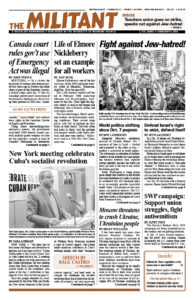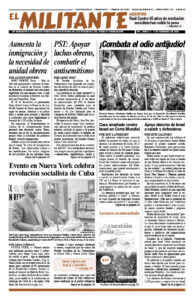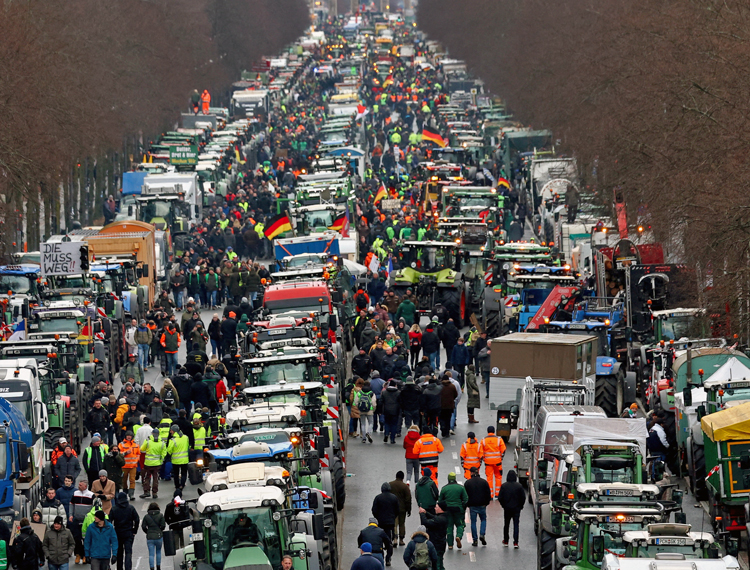Some 5,000 tractors and 30,000 protesters brought Berlin’s city center to a standstill Jan. 15 as farmers protested rising prices and German government plans to cut agricultural fuel subsidies, above. Arriving overnight from across the country, farmers parking tractors nose-to-tail along the route were joined by other workers driving trucks and forklifts.
The crowd held signs and banners saying, “Without farmers, there’s no future,” and “We farmers take care of your food.” “This is about the farming future,” Werner Schuermann, a farmer from Resthausen, told Global News. The government subsidies aren’t what we need, he said. “Farmers want fair prices for our products and we want to make ends meet.” The action culminated weeks of protests.
German Finance Minister Christian Lindner addressed the crowd, insisting there was no money for the subsidies and that “everyone has to do their bit.” He was met with a barrage of boos and calls of “liar.” On Jan. 18 the government announced it was going through with the cuts.
The German capitalist class’s economy — the largest in Europe — is faltering. Industrial production has fallen five months in a row, and German bosses now preside over the slowest growing economy among the 20 countries using the euro. Their moves to make the working class pay for the crisis are deeply unpopular.
On Jan. 19 Berlin’s city center was paralyzed again, this time by a milelong convoy of some 1,500 truckers. Drivers demanded the government reverse increases on their highway tolls and on levies they have to pay for fuel emissions.
Calling protests to date just “foreshocks,” Joachim Rukwied, president of the German Farmers’ Association, said Jan. 19, “If nothing changes now, there may be an eruption.” He said they would call “more far-reaching” protests all across the country.


